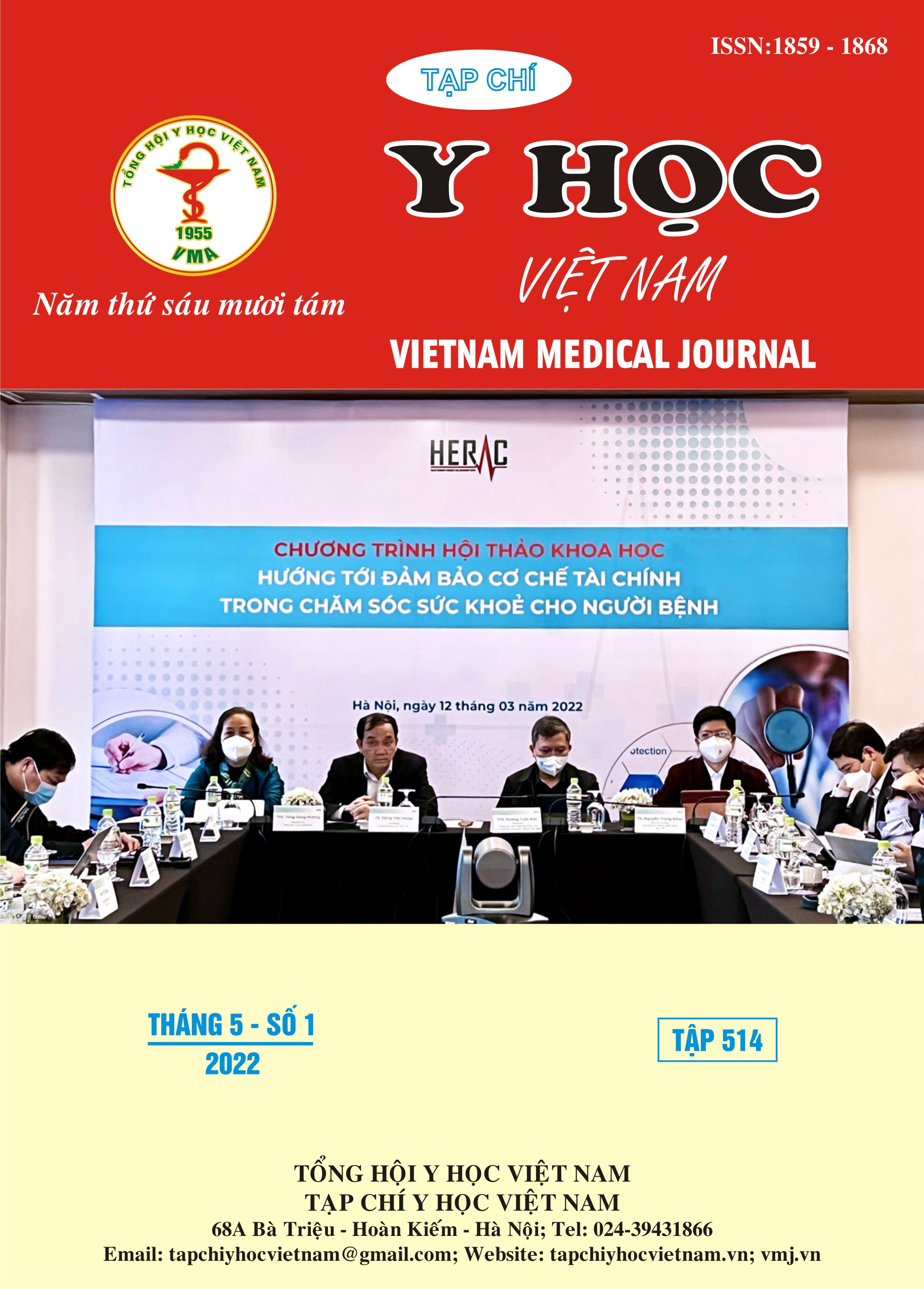STUDY CLINICAL FEATURES AND TREATMENT OUTCOMES OF PATIENTS WITH CHRONIC ALCOHOL ABUSE
Main Article Content
Abstract
Objective: To examine clinical features and treatment outcomes of patients with chronic alcohol abuse. Method: Analyse clinical features and treatment outcomes of 45 patients with alcohol abuse who received inpatient treatment in the Psychiatric Department, 103 Military Medical Hospital. Results: The average duration of alcohol abuse was 14.81± 5.85 years, average amount of alcohol consumed was 1024.45 ± 126.74 ml and heavy alcoholism was 68.89%. The symptoms of alcohol abuse: visual illusion (84.44%), jealousy delusion (64.44%), emotional excitement (57.78%). 100% patients were treated by benzodiazepin and vitamin B1 and 86.67% of patients recovered completely after 3 weeks. Conclusion: Clinical features of patients with chronic alcohol abuse are varied and abundant.
Article Details
Keywords
Chronic alcohol abuse
References
2. Nguyễn Văn Tuấn (2014), “Nghiên cứu lâm sàng và hiệu quả điều trị suy giảm nhận thức ở bệnh nhân loạn thần do rượu”, Luận văn tiến sỹ Y học, Đại học y Hà Nội.
3. Bùi Quang Huy, Nguyễn Mạnh Hùng và Lê Văn Quân (2019), Điều trị nghiện rượu, Nhà xuất bản y học, Hà Nội.
4. Cao Tiến Đức và Trần Văn Trường (2016). Các rối loạn tâm thần, hành vi và tổn thương cơ thể do nghiện rượu, Nhà xuất bản y học, Hà Nội.
5. Jung Y.C. and Namkoong K. (2014), “Alcohol: intoxication and poisoning - diagnosis and treatment”, Handb Clin Neurol; 125: 115-121.
6. Wang S.C., Chen Y.C., Chen S.J., et al. (2020), “Alcohol Addiction, Gut Microbiota, and Alcoholism Treatment: A Review”, Int J Mol Sci; 21(17): 6413.
7. Kaplan H.I. and Sadock B.J. (2005), "Alcohol - Related disorders", Concise Textbook of Clinlcal Psychiatry, Second edition: 80-92.
8. Zafar N.A. and Nadir A.A. (2008), "Valproate Treatment of Acute Alcohol Hallucinosis: A Double-Blind, Placebo-Controlled Study", Alcohol Alcohol; 43(4): 456-459.


